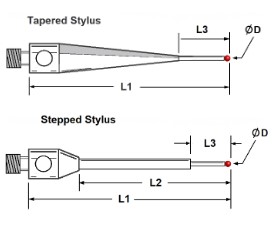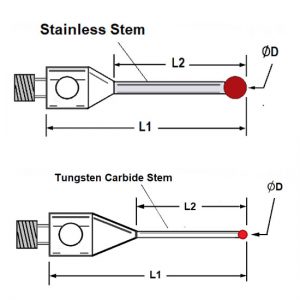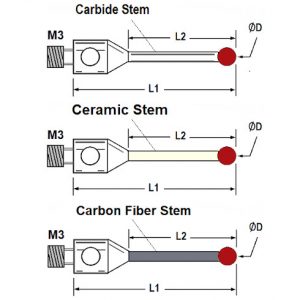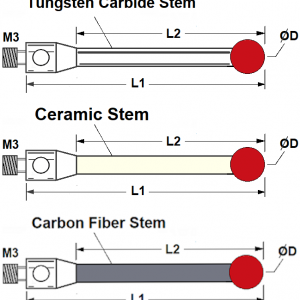M3 Styli 0.2mm to 0.8mm Ball
Highly Spherical Ball Styli are the most common tips for use on CMMs with touch trigger probe systems. The sphericity of the ball and stiffness of the stem are critical for getting the most accurate measurements. The stylus is calibrated for exact diameter and then software compensation creates the measured point at the ball center instead of the surface in contact with the part. The Styli on this page range from 0.2mm to 0.8mm. Most of these Tungsten Carbide stem that have the best stiffness to weight ratio. Longer stylus are available in Ceramic or Carbon fiber mainly to reduce the weight while maintaining the stiffness. Ruby is the most common, very spherical, physically hard and durable ball material. Specialized materials like Silicon Nitride, Zirconia and even Diamond are used for specific materials measurement especially when physically scanning the material surface rather than taking discreet points.




